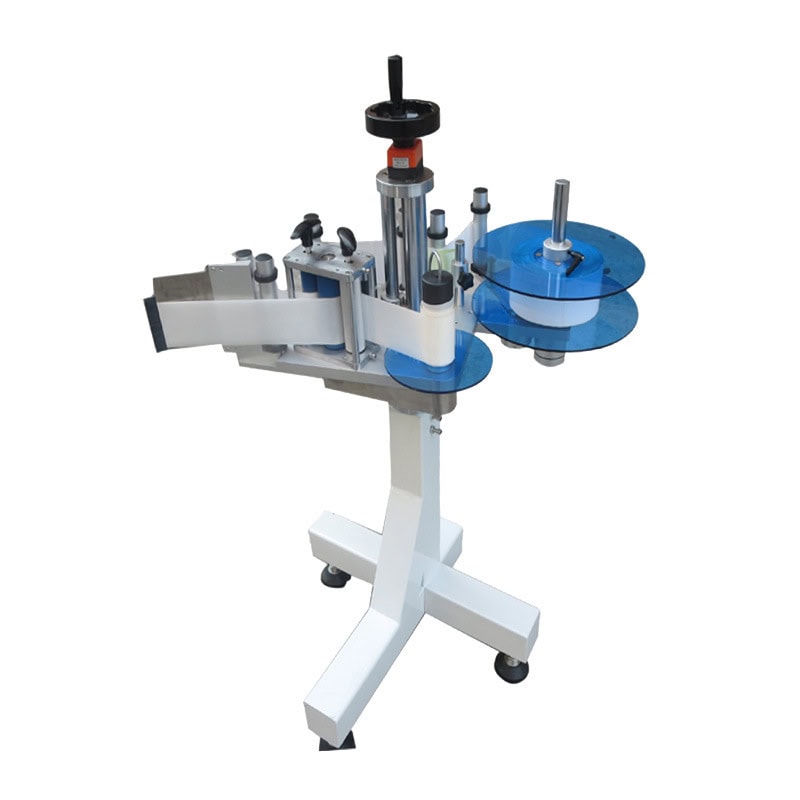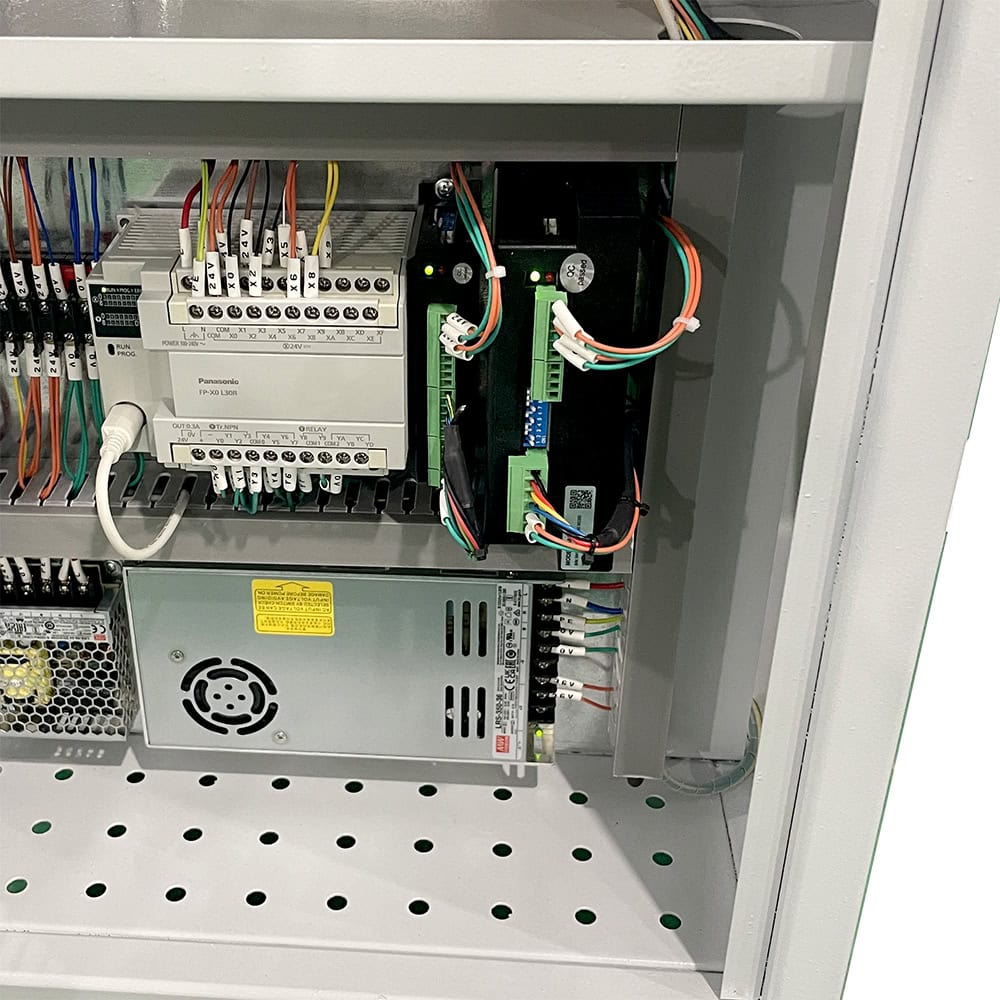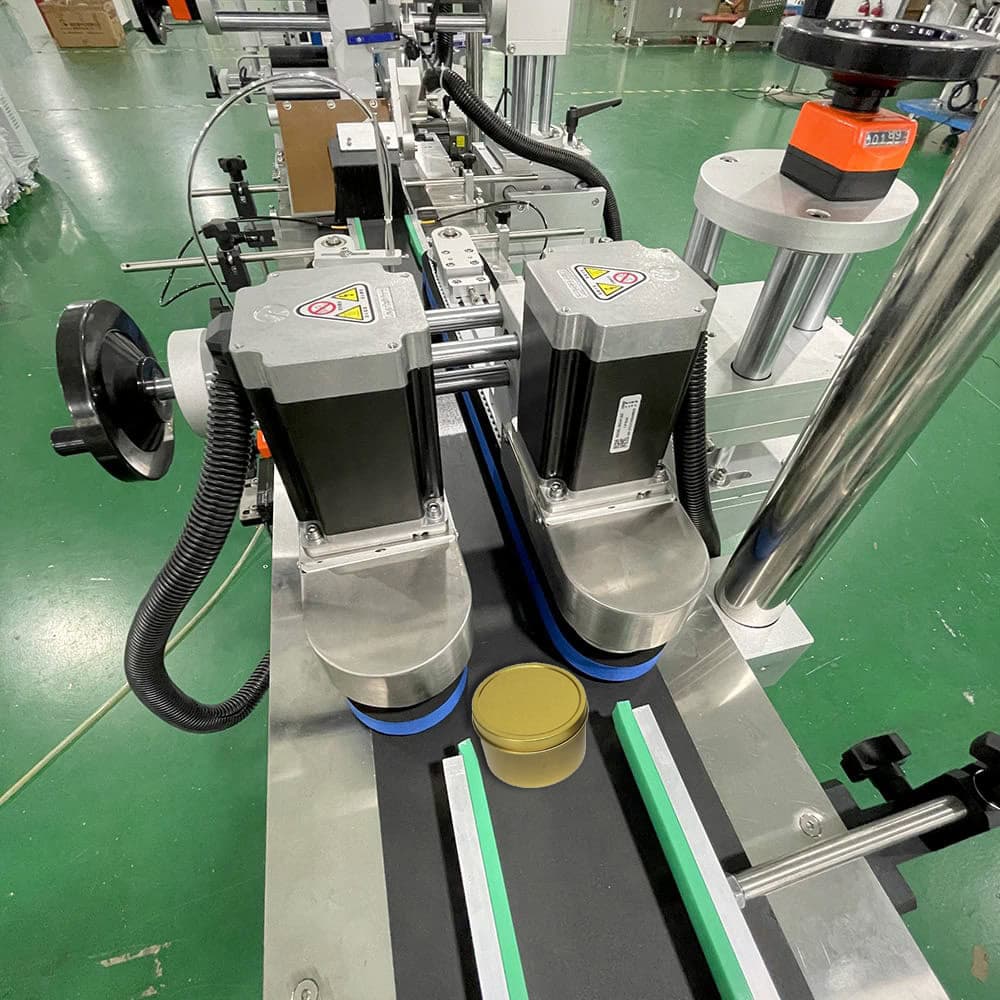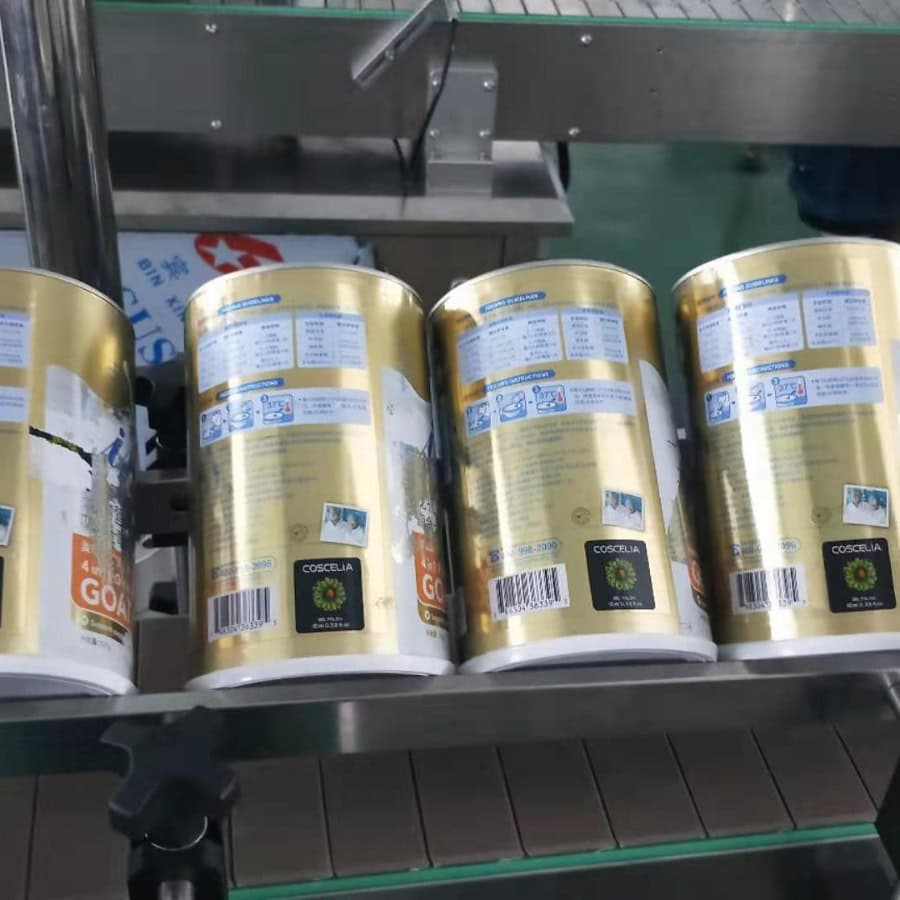Labeling bottlenecks can delay production lines, leading to costly inefficiencies. Inline automatic labeling machines offer an efficient, high-precision solution for faster production and fewer errors.
An automatic inline labeling machine is an automated system used to apply labels precisely and efficiently onto products as they move along a production line. These machines are versatile, compatible with various products, and enhance productivity by reducing manual intervention.
Let’s explore how these machines function, their key features, and their importance in modern production lines.

Definition and Function of an Automatic Inline Labeling Machine
Automatic inline labeling machines are designed to label products that pass through a conveyor system without manual handling. These machines are equipped with sensors, control systems, and precision tools that allow seamless labeling while the production line operates. This design ensures that each product is labeled accurately without any halt in production.
Their importance lies in reducing human labor, speeding up the production process, and minimizing errors in product labeling. This makes them an essential component of industries like food, beverages, pharmaceuticals, and consumer goods.
Key Functions
- Continuous Labeling: They label products in motion without stopping the production line, ensuring efficiency.
- Automated Adjustments: These machines automatically adjust to varying product sizes, shapes, and label types, reducing the need for manual intervention.
- High-Speed Labeling: Capable of handling hundreds to thousands of products per hour, enhancing throughput while maintaining label accuracy.
Parts of an Automatic Inline Labeling Machine
An inline labeling machine comprises several components that work together to deliver precision labeling:
- Conveyor Belt: This transports the products through the labeling process, ensuring smooth movement for continuous labeling.
- Label Application Unit: The core of the machine, this unit applies the label to the product at the correct position and orientation.
- Sensors: These detect the position of products on the line and control the timing of label application, ensuring accuracy.
- PLC (Programmable Logic Controller): The PLC manages the overall coordination of the labeling process, controlling when the label is applied and ensuring that the machine operates efficiently.

Types of Inline Labeling Machines
Inline labeling machines come in various types, each suited for specific products and applications. The most common types include:
Wrap-Around Labelers
Designed for cylindrical products like bottles and cans, these labelers apply a label that wraps entirely around the product. This type is commonly used in the beverage and food industries.
Top and Bottom Labelers
These machines apply labels to the top and bottom of products, such as boxes or flat containers. They are ideal for labeling packaging used in retail products or electronics.
Front and Back Labelers
Best for labeling both the front and back of containers like jars, bottles, and boxes, these labelers ensure that important information like branding and product details are displayed on both sides of the product.

Industries Benefiting from Inline Labeling Machines
Many industries rely on inline labeling machines for their efficiency and precision. Key sectors include:
Food and Beverage
Inline labeling machines are essential for labeling bottles, cans, and packaging for water, soda, juices, and other beverages. These machines allow for high-speed operations that match the demands of large-scale production.
Pharmaceutical Industry
In the pharmaceutical industry, inline labeling machines are used to apply labels that meet strict regulatory requirements, ensuring that important information such as dosage instructions, ingredients, and batch numbers are visible and accurate.
Advantages of Using an Automatic Inline Labeling Machine
There are several benefits to using inline labeling machines:
Increased Efficiency
Automatic inline labeling machines significantly improve production efficiency by applying labels at high speeds without interrupting the workflow. This reduces manual labor costs and shortens production time.
Precision Labeling
These machines are equipped with advanced sensors and control systems that ensure the label is applied in the exact position every time, improving product presentation and compliance with labeling standards.
Versatility
Inline labeling machines are adaptable to various product shapes and sizes, making them suitable for a wide range of industries. Their ability to handle different label materials and designs further enhances their flexibility.
Common Applications of Inline Labeling Machines
Inline labeling machines have diverse applications across many sectors. Some of the most common include:
Bottle Labeling for Beverages
This is one of the most widespread applications of inline labeling machines. Bottles of all shapes and sizes can be labeled efficiently, whether in the water, juice, or alcoholic beverage sectors.
Box Labeling for Retail Products
In the retail industry, inline labeling machines are used to apply barcode labels, product information, and branding to various packaging materials, ensuring compliance and improving product presentation on store shelves.
Medical and Pharmaceutical Packaging
Ensuring proper labeling of medicines is critical for safety and compliance. Inline machines help pharmaceutical companies efficiently manage the labeling of pill bottles, syringes, and other medical containers.

Factors to Consider When Choosing an Inline Labeling Machine
When selecting an inline labeling machine, several factors must be taken into account to ensure it suits the production requirements:
Speed Requirements
The machine’s labeling speed should match or exceed the speed of your production line to prevent bottlenecks and ensure smooth operations.
Label Type and Size
Different machines accommodate various label sizes and types. It’s important to choose a machine that can handle the specific label dimensions required for your products.
Product Shape
Certain machines are better suited for specific product shapes. For instance, cylindrical labelers work best for bottles, while flat labelers are ideal for boxes or packaging with flat surfaces.
Maintenance and Troubleshooting of Inline Labeling Machines
Regular maintenance ensures smooth operation and longevity of the machine. Common maintenance tasks include:
Label Sensor Calibration
This ensures the machine accurately detects products and applies labels at the right time. If the sensor is misaligned, labels may be applied in the wrong position or not at all.
Conveyor Alignment
Ensuring the conveyor system is properly aligned prevents jamming and ensures that products move smoothly through the labeling process.
Periodic Cleaning
Dirt, adhesive, or debris buildup can hinder machine operation. Cleaning the machine regularly prevents malfunctions and extends its life.
Conclusion
Automatic inline labeling machines streamline production, improve accuracy, and reduce costs, making them invaluable for modern manufacturing processes.









